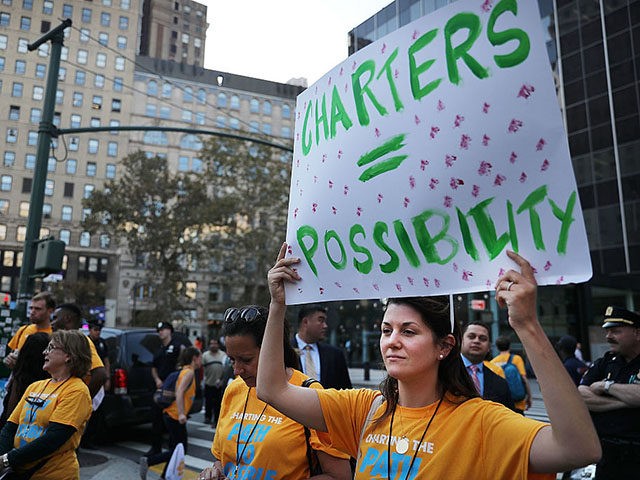The Biden administration is making a “backdoor attempt” to limit school choice by proposing a policy that would significantly change how charter schools are approved for federal funding, according to Rep. Ted Budd (R-NC).
In a letter to Secretary of Education Miguel Cardona on Monday, Budd brought up a proposed rule that would require new charter schools to demonstrate “sufficient demand” in a community to be eligible for federal grant money.
Budd told Cardona that, for many families, charter schools are “an escape from mismanaged school systems” and can “cater to students left behind by public school systems,” adding that the creation of such institutions should not be discouraged by policy.
The congressman and U.S. Senate candidate continued:
DOE’s false assumption that prospective charter schools must demonstrate a need within a given
community represents a backdoor attempt to limit choice for parents and students,” “These sorts of burdensome requirements would never be applied to school systems beholden to powerful teachers unions that organize against the interests of families and students.
Under the policy, which was published on March 14, new charter schools would also be required to detail “targeted student and staff demographics” and how the applicant “plans to establish and maintain racially and socioeconomically diverse student and staff populations…, ” the policy language states.
“…Including proposed strategies (that are consistent with applicable legal requirements) to recruit, enroll, and retain a diverse student body and to recruit, hire, develop, and retain a diverse staff and talent pipeline at all levels (including leadership positions),” the policy continues.
The proposed policy adds that if promoting “diverse” student and staff populations is not possible because of community demographics, the federal government could still fund those applications. However, the policy does state that those schools would have to submit a plan detailing how they “would not increase racial or socio-economic segregation or isolation in those schools.”
In a March 21 Washington Post report, the National Alliance for Public Charter Schools said it was “unhappy with several provisions of the proposal.”
Nonprofits could outsource particular tasks — such as payroll, for instance — to for-profit companies. But arrangements in which for-profit companies run the entire operation under contracts known as “sweeps” would be ineligible for the start-up grants. The proposal specifically bars arrangements under which a for-profit management company “exercises full or substantial administrative control over the charter school … or over programmatic decisions.”
“It looks like an aggressive attempt to keep schools managed by for-profit companies from receiving these funds,” he said.
Budd concluded his letter to Cardona by encouraging him to backpedal the proposal altogether.
“While I am aware of your close relationship with teacher’s unions, I urge you to rescind this harmful provision that will limit students’ educational outlooks to their zip code,” he wrote.
The charter school proposal is open for public comment until April 14.

COMMENTS
Please let us know if you're having issues with commenting.